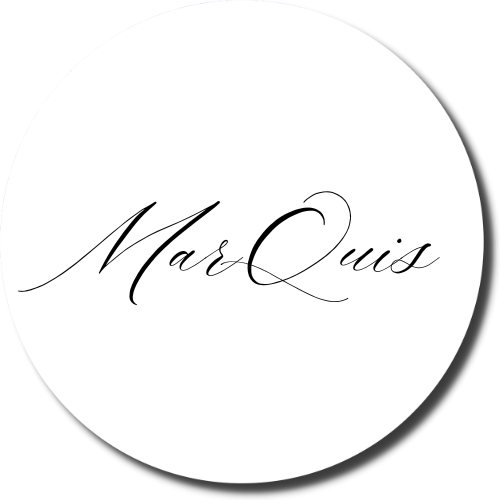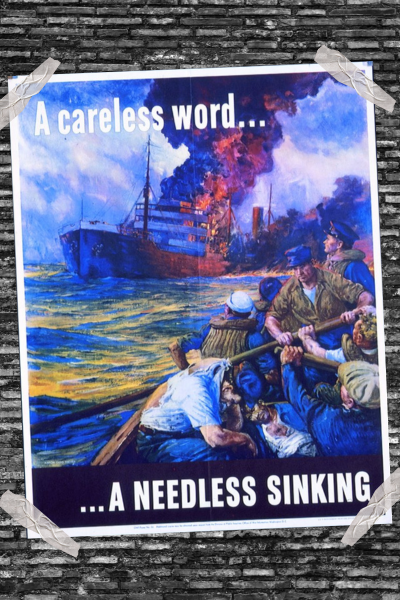Loose Lips Sink Ships—But What Does That Really Mean?
“Loose lips sink ships.” “You can’t squeeze blood out of a turnip.” These are phrases we toss around without a second thought. But have you ever wondered where they come from? Or why we even bother saying them? Sometimes, our words hold onto wisdom we’ve long forgotten—and if we’re not careful, we can lose our grip on the truth altogether.
Consider “Loose lips sink ships.” It’s a peculiar statement on its face, isn’t it? How exactly could a “loose lip” cause something as massive as a ship to sink? This phrase, like many others, has roots we rarely think about. It originated as a World War II slogan on propaganda posters created by the United States Office of War Information, warning against careless talk that could reveal sensitive information to the enemy and endanger lives. Since then, it’s evolved into a general warning about the dangers of indiscreet speech.
But now, like so many old sayings, “Loose lips sink ships” has become so commonplace that we barely pause to consider it. It slips past us, taken for granted, just like so many other things that shape our thinking and our discourse. It’s just words, right?
Language evolves, adapting to the times and the needs of each generation. Today, instead of “Loose lips sink ships” or “You can’t squeeze blood out of a turnip,” we hear phrases that are even more pared down, modern shorthand for complex thoughts. Gen Z, for instance, often distills entire sentiments into single words like “simple,” “period,” or “say less.” Each phrase has a nuanced meaning in today’s culture: “simple” conveys authenticity, something straightforward and real. When they say “period,” it’s a way of adding finality—it means, “I get it; nothing more needs to be said.” “Say less” implies full understanding, a kind of conversational shorthand for “I’m clear on this; no need to elaborate.”
And while these words are often powerful in their simplicity, here’s where a subtle risk emerges. These phrases, intended to capture agreement or understanding, can often serve as conversation-stoppers. They imply that the listener has full clarity and that no further explanation is necessary. But what if there’s more to explore, deeper layers to uncover? This shorthand can hinder elaboration, leaving us with an impression rather than a deeper insight. Even as our language becomes briefer and perhaps more efficient, we run the risk of falling into the same habits that birthed the clichés of older generations. In doing so, we may miss out on nuances—the “genes” of understanding that could lead to richer perspectives and insights if we allowed ourselves to elaborate.
The Absurd: Slipping into Our Conversations and Taking Root
Absurdity is a funny thing; it can sneak into our conversations, our news cycles, and our daily lives, all while passing itself off as harmless or even serious. Think about it: How many absurdities have you come to accept as true? Or how often have you let something ridiculous slip by without a second thought? Maybe you’ve even shrugged it off, thinking, “Well, that’s just the way things are.” But the truth is, the more we let these little lies into our lives, the more we surrender our power to question—and over time, we risk losing sight of what’s real altogether.
In this climate, absurdity has come to dominate our table talk and news cycles, showing up in casual conversations and even in our politics. We repeat phrases, embrace ideas, and lend weight to thoughts without ever stopping to ask if they make sense. It’s as if we’ve become comfortable carrying water for the absurd. We give it free passage into our conversations, and then it embeds itself as if it belongs there.
What’s the Harm in Ignoring the Absurd?
But here’s where I want to take this a step further. The real question isn’t just about whether we can tell a cliché from a truth. It’s about understanding that there are real consequences for letting absurdities slip past our defenses. What might be the consequences of ignoring insights? How might that impact the people you love? And how might you be irreversibly affected if someone close to you unknowingly carries water for your enemies?
This isn’t hypothetical. We’re living in a time when letting absurdities go unchallenged can bring real harm, not just to us but to our families and our communities. We’re at a point where failing to see the urgency in questioning what’s around us is tipping us toward something deeply troubling—an irreversible slide into a kind of fascist democracy, one that thrives on deception and allows despotism to flourish under the guise of “keeping things in order.”
Think about it. This is the age where lies can be repeated so often they take on the shape of truth, especially if we’re unwilling to call them what they are. Studies show that the repetition of a lie can make it feel like an unimpeachable truth. It’s a strategy rooted in psychological manipulation, one designed to bypass our logic and appeal to something else entirely—a dangerous comfort with the familiar, even if the familiar is a lie.
Our Responsibility: Taking Ourselves and Our Words Seriously
Now, I’m not asking you to take me seriously. Quite the opposite. My goal here isn’t to make myself sound profound or deep or smart. I’m here to ask you to take yourself seriously. To recognize that within you lies a critical capacity—a truth-seeking, truth-holding responsibility that our current moment desperately needs.
It’s easy to shrug off a question, to dismiss something as just “too deep” or “too technical.” I’ve been called an “asshole” more times than I can count for pointing out things that some people find inconvenient. But why is that? Why am I seen as difficult for wanting us to recognize that we could achieve so much more with so much less—if only we took the time to isolate the hidden gems of insight we each carry?
Imagine if we each tapped into that inner awareness, that lens for seeing the small yet powerful truths that slip by in our everyday lives. I’m reminded of the analogy of a scientist working to isolate a gene. That gene might seem minuscule to the naked eye—indeed, you can’t even see it without a microscope. But that tiny gene could hold the answer to a disease that affects millions. It’s small, yet it carries immense power. Our words, our thoughts, our insights can be just as powerful if we magnify them, look at them closely, and use them to guide our actions.
Seeing Clearly: Moving Past Absurdity to Find Meaningful Connection
This brings me to a sacred text: “Oh magnify the Lord with me and let us exalt His name together.” Now, I know there are plenty of people who may not be familiar with this text or who might feel turned off by it, especially given how religion has been misused in recent times as a tool of division. But bear with me here. I want to use this phrase in a different way—one that might offer a perspective on how to navigate the world without letting absurdity have the final word.
In this context, the word “magnify” works much like a microscope. The call is to look through a lens that shows us something beyond what’s visible to the naked eye. It’s a call to recognize that we might be missing something essential in how we see ourselves, each other, and the world around us. It’s a reminder that, if we had the ability to “magnify” our understanding, we’d likely find our way to something organic and naturally unifying.
And here’s the catch: that kind of strength—real strength—doesn’t mean “a better abuser.” It’s not about dominating others or demonstrating power through oppression. Yet, so many have been “made to believe” that strength is synonymous with control and cruelty. That’s the absurdity we’re here to dismantle.
The Real Challenge: Don’t Be Sucked into Carrying Water for the Absurd
So yes, it’s possible to be sucked into “carrying water” for the absurd. There’s another cliché for you, “carrying someone’s water,” which means doing a task for someone else in a subservient manner and without critical thought. Absurdity feeds off that lack of critical thought. It thrives on our willingness to pass along ideas, phrases, and beliefs without challenging them, without testing them, without stopping to consider what they mean or where they lead.
You see, this isn’t about being petty or trying to split hairs. It’s about paying attention to your words, your insights, and your beliefs, even in moments of casual discourse—in barroom conversations, table talk, and car rides. Why are we so insistent on not making sense anyway? Why is it so hard to be impeccable with our words?
Loose Lips Sink Ships: Understanding Our Power and Responsibility
Let’s circle back to “Loose lips sink ships.” Originally coined in World War II, this phrase served as a powerful warning against careless talk, the kind that could risk lives by exposing sensitive information to enemies. Today, it’s a general reminder of the risks that indiscreet speech can pose to relationships, politics, and society at large. But its core message extends beyond its original context: it’s a call for us to take our words seriously.
And yet, while older phrases may no longer hold the same resonance for every reader, modern language has found its own ways to abbreviate meaning. Gen Z catchphrases like “period” or “say less” carry with them a similar implication: “I get it; I understand; there’s no need to go further.” These phrases are convenient, efficient, and often powerful in their simplicity. But just as “Loose lips sink ships” once did, they risk closing down conversations, stopping us short of full understanding. They ask us to presume clarity when perhaps we’ve only scratched the surface.
This tendency to “say less” might be convenient in a fast-paced world, but it’s worth asking: What do we lose when we stop at impressions rather than diving into the nuances? How much richer could our perspectives be if we allowed ourselves—and those we’re talking with—to elaborate?
The real question here isn’t about choosing old words or new ones. It’s about using language in a way that brings clarity, depth, and responsibility. Each of us has the power to seek meaning, to question easy answers, and to refuse the comfort of assumptions. So, next time you hear a phrase that feels all too simple or a cliché that’s lost its meaning, pause and ask yourself: What do I truly believe? How can I ensure that belief serves not just me but the people I love?
Because when we each start to hold onto what’s real, no matter how familiar or modern the words, we reshape the world into one that values truth, unity, and resilience.
A Call to Action Rooted in Self-Trust
This is about more than words; it’s about fostering a culture of mindful communication and critical thinking. It’s about ensuring that we don’t let brevity become an excuse for superficiality. By taking ourselves seriously and engaging earnestly with the language we use, we can challenge the absurdities that threaten to undermine truth and unity.
So, whether it’s “Loose lips sink ships,” “say less,” or any other phrase that comes your way, consider the power and responsibility that comes with your words. Let’s choose to engage fully, think deeply, and communicate in ways that foster understanding rather than halt it. In doing so, we can reshape our conversations, our relationships, and perhaps even the world around us in ways that honor truth, encourage unity, and build resilience against deception.
I Make Language Beautiful
I make language beautiful
My words are choice and meaningful
I make language beautiful to behold
I make language marvelous
Since beauty means so much to us
I make language beautiful so I’m told
I make language musical
Words to symphony then miracles
I make language beautiful for ears
I make language reach to touch
Soft hearts and hidden pains and such
I make language beautiful to feel
I make language good vibration
A segue’ from lecture to conversation
I make language beautiful to breathe
I make language return to you
Your words come back and speak their truth
I make language beautiful
I make language innocuous
To make the truth conspicuous
I make language beautiful for eyes
Musically – and rhythmically innocuous
both beats and tones speak truth to us
I make language show beneath what lies
I make language reach beyond
Trite fights of posh and vagabond
I make language a common bond for them
I make language flow together
Come on – who else would put these words together
I make language beautiful to use



